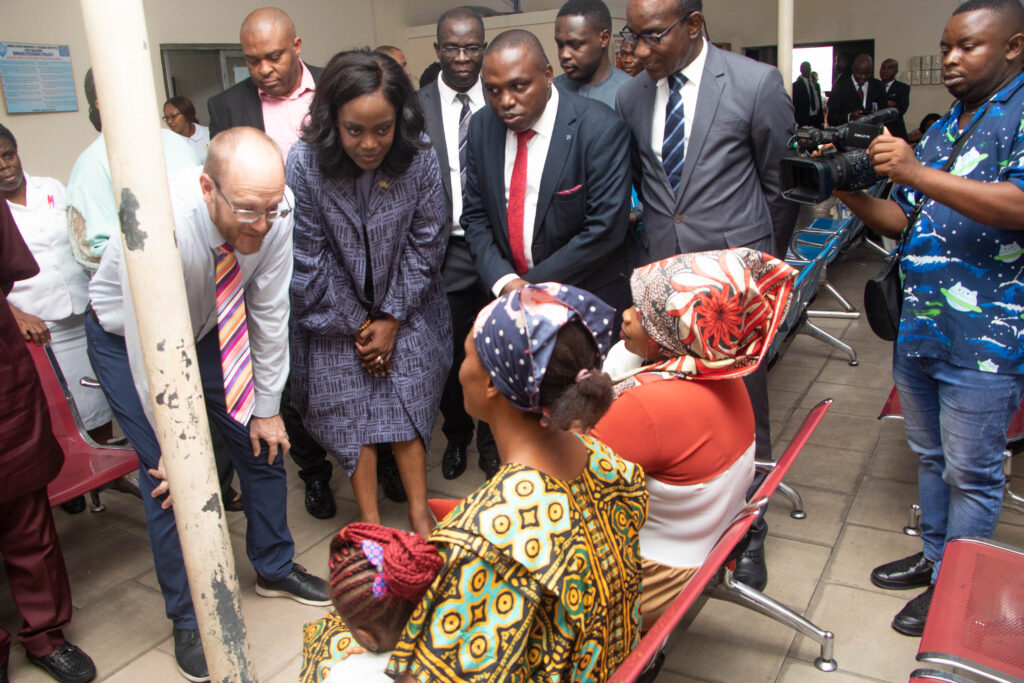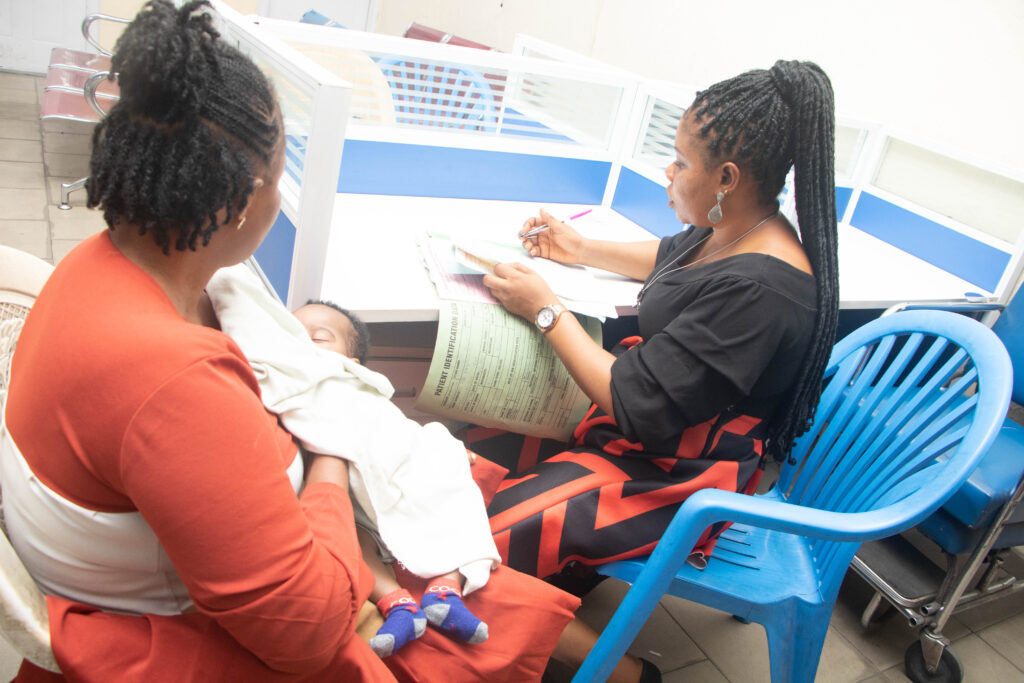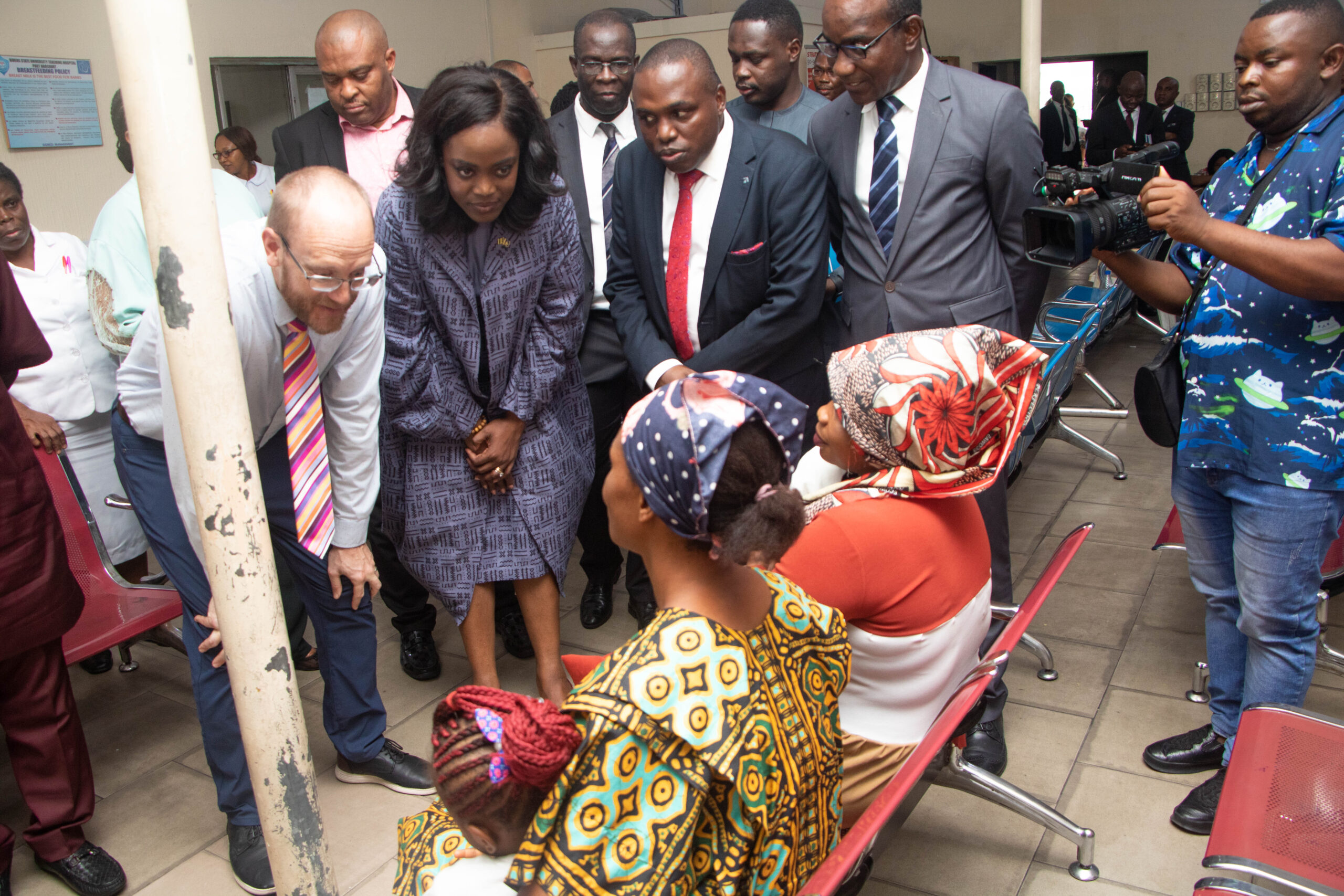One of the services that the Institute of Human Virology Nigeria (IHVN) supports in 368 health facilities in FCT, Rivers, Nasarawa, and Kastina states is the prevention of mother-to-child transmission of HIV (PMTCT) services. This involves the provision of HIV diagnosis, care, and treatment for mothers and babies and results in HIV-free babies.
From 2004 to June 2023, IHVN has provided HIV counseling and testing to 5.5 million pregnant women and PMTCT services to more than 126,000 women who tested HIV positive.
Blessing, a petty trader, is one of the women who have received PMTCT services in Rivers State University Teaching Hospital in Port Harcourt, Nigeria. She recalls that when she discovered her HIV status in 2013, one of her greatest fears was that she would not be able to get married or give birth to HIV-free children.
“I thought that being HIV positive was a death sentence but the doctor who counseled me assured me that I could live long, get married, and have my own children. He gave me medications and guided me on how to take them,” she said.
It was a dream come true for Blessing when she married in 2019 and got pregnant afterward.
“At the antenatal clinic, the healthcare workers welcomed me like everyone else. I was not stigmatized. I was impressed and happy. When I was in labour, they gave me VIP treatment, I delivered safely,” she said.
Blessing and her baby were given medications and supported by a peer mentor who assisted her with hospital processes during pregnancy, delivery, and after delivery. Her baby was tested at six weeks and 18 months.
“I was happy when the test showed that my baby is HIV negative,” Blessing said. She has also received PMTCT services for her two-month-old baby who she is currently breastfeeding.
“My advice to others is not to be scared about HIV. You are not alone, don’t die like a chicken. Since I started taking HIV medications in 2013, I rarely fall sick. I am strong and healthy. You can eat well and live your normal life even when taking medications. You can even live to see your great-grandchildren,” she said.
Another mother with HIV-free children is Bomi A., who was thrilled after an Early Infant Diagnosis test at six weeks and a rapid test at 18 months showed that her babies were HIV-free.
“My first child is four years old and my second is two years old. For the first child, I was worried when I came to the hospital. I asked the doctor if everything would go well, and he assured me that it was well. For the second one, I was not worried. Antenatal services are given free by the Rivers State government. I did not pay for the PMTCT services in the hospital either.”
“My mentor mother often calls me to ask how I’m feeling and if I am facing any challenges. She also updates me with relevant information. When I come to the clinic, she checks to see that I’m alright,” she said.
Bomi added that during her facility visits, she interacts with other women living with HIV and is encouraged by their resilience.
“I’m excited to tell others to try their best to take their medications as prescribed,” Bomi said.
IHVN Rivers State ASPIRE Project Manager, Dr. Stanley Idakwo, noted that between April 2019 to September 2023, IHVN supported the testing of 7,122 antenatal clients and placed 69 newly identified HIV pregnant women on anti-retroviral treatment at Rivers State University Teaching Hospital (RSUTH). “More than 500 babies have been delivered HIV-free from HIV-positive mothers who have benefitted from PMTCT services. RSUTH is one of the largest facilities providing PMTCT services in Rivers state, hence its reach cut across communities all over the state,” he said.
IHVN Program Manager Prevention Care and Treatment, Dr. Victoria Igbinomwanhia said that IHVN provides PMTCT services in both health facilities and in the community to improve access to the services.
“We are collaborating with Traditional Birth Attendants (TBAs) and faith-based homes to offer PMTCT services. We provide them with HIV test kits; we have trained the TBAs to conduct HIV testing, referring those who are identified positive to designated supported facilities to commence ART. We have hub and spoke models where TBAs are mapped to supported health facilities. If clients are tested in the community, we find out whether they prefer to access PMTCT in the community or facility.” she said.



